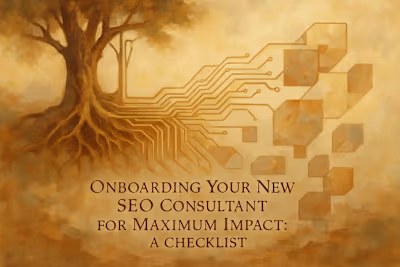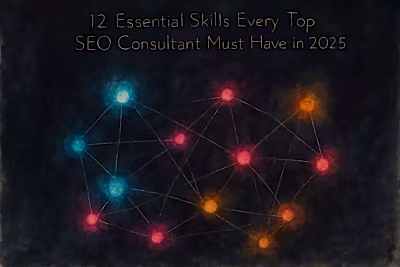20 Must-Ask Interview Questions for Hiring an SEO Consultant

20 Must-Ask Interview Questions for Hiring an SEO Consultant
Questions About Their Approach and Strategy
1. How would you describe your overall SEO philosophy?
2. Based on our website, what do you see as our biggest SEO opportunities and challenges?
3. How do you stay up-to-date with Google's algorithm changes?
4. How do you approach keyword research and user intent?
5. What is your process for conducting an SEO audit?
Questions About Technical Expertise and Experience
6. Can you describe a challenging technical SEO issue you've solved?
7. What is your experience with website migrations?
8. How do you approach link building? What kind of links do you consider valuable?
9. Which SEO tools do you prefer and why?
10. How do you factor user experience (UX) and site speed into your strategy?
Questions About Reporting and Communication
11. How do you measure the success of an SEO campaign?
12. What would your typical monthly report look like?
13. How do you handle a situation where results are not meeting expectations?
14. How would you collaborate with our content and development teams?
15. Can you provide examples of past work or case studies?
Questions to Uncover Red Flags
16. Can you guarantee a #1 ranking on Google?
17. How long will it take to see results?
18. Do you have a 'special relationship' with Google?
19. What are your thoughts on AI-generated content for SEO?
20. What questions do you have for me?
References
20 Must-Ask Interview Questions for Hiring an SEO Consultant
Questions About Their Approach and Strategy
1. How would you describe your overall SEO philosophy?
2. Based on our website, what do you see as our biggest SEO opportunities and challenges?
3. How do you stay up-to-date with Google's algorithm changes?
4. How do you approach keyword research and user intent?
5. What is your process for conducting an SEO audit?
Questions About Technical Expertise and Experience
6. Can you describe a challenging technical SEO issue you've solved?
7. What is your experience with website migrations?
8. How do you approach link building? What kind of links do you consider valuable?
9. Which SEO tools do you prefer and why?
10. How do you factor user experience (UX) and site speed into your strategy?
Questions About Reporting and Communication
11. How do you measure the success of an SEO campaign?
12. What would your typical monthly report look like?
13. How do you handle a situation where results are not meeting expectations?
14. How would you collaborate with our content and development teams?
15. Can you provide examples of past work or case studies?
Questions to Uncover Red Flags
16. Can you guarantee a #1 ranking on Google?
17. How long will it take to see results?
18. Do you have a 'special relationship' with Google?
19. What are your thoughts on AI-generated content for SEO?
20. What questions do you have for me?
References
Posted Jun 15, 2025
Don't hire the wrong SEO consultant. This guide provides 20 essential interview questions covering strategy, technical skills, and reporting to help you vet candidates and find an expert.










